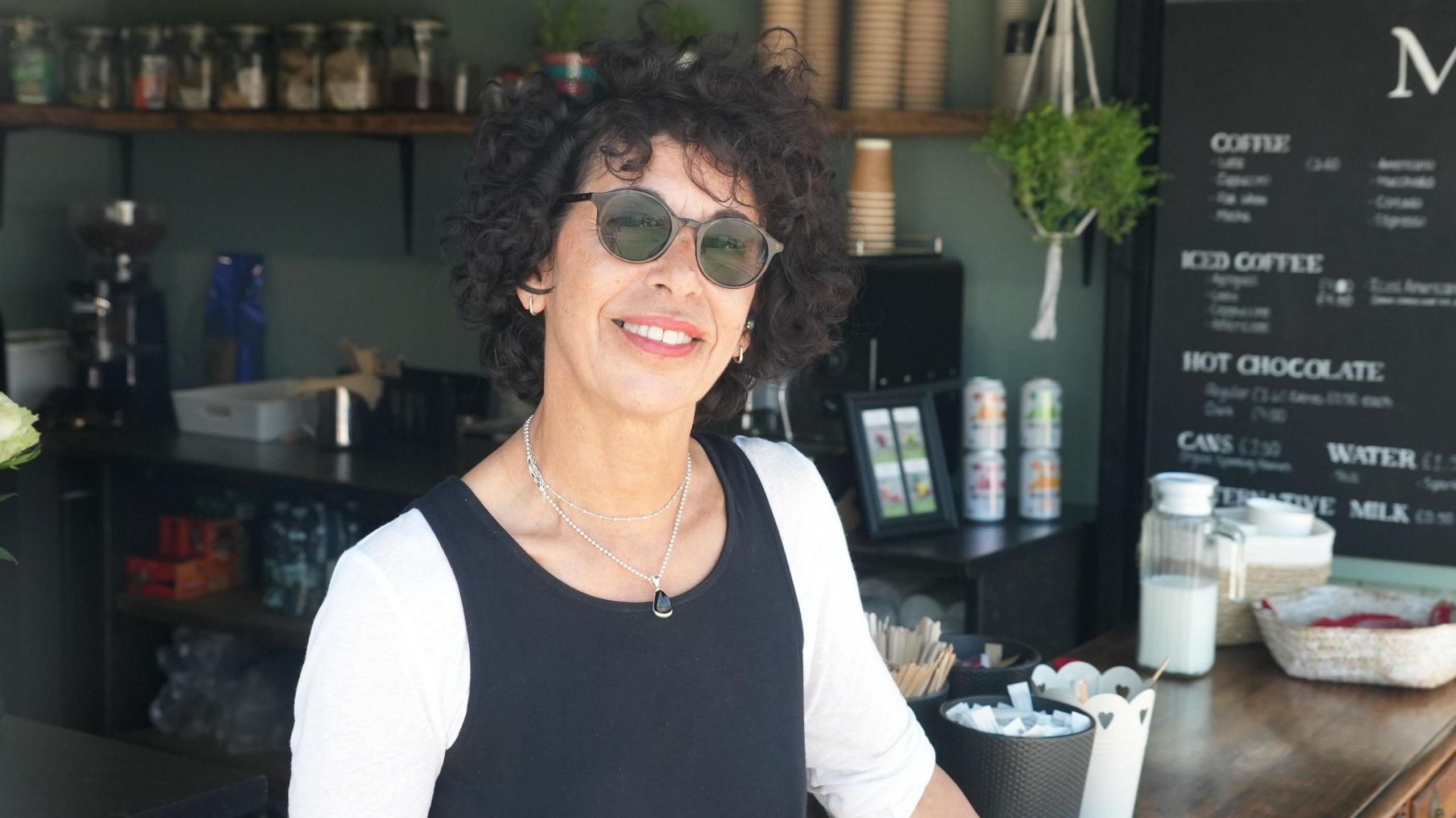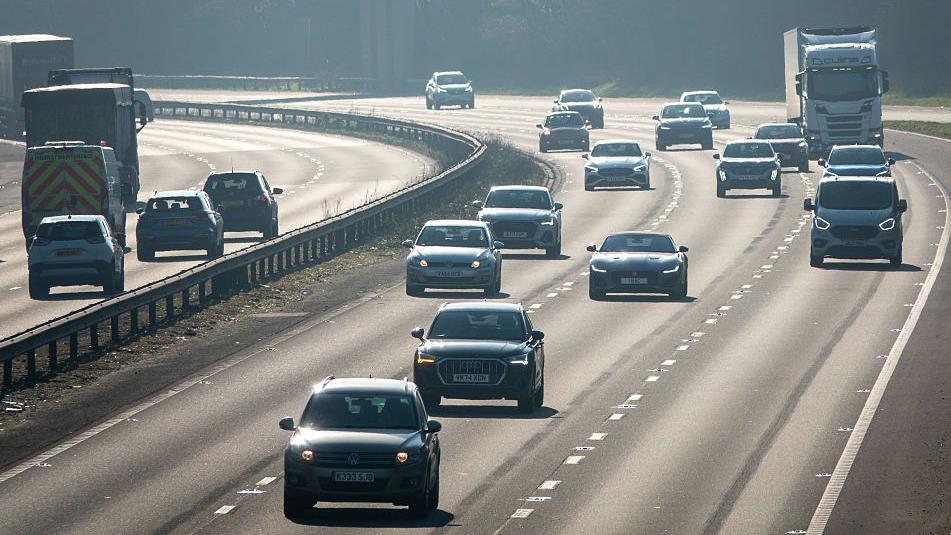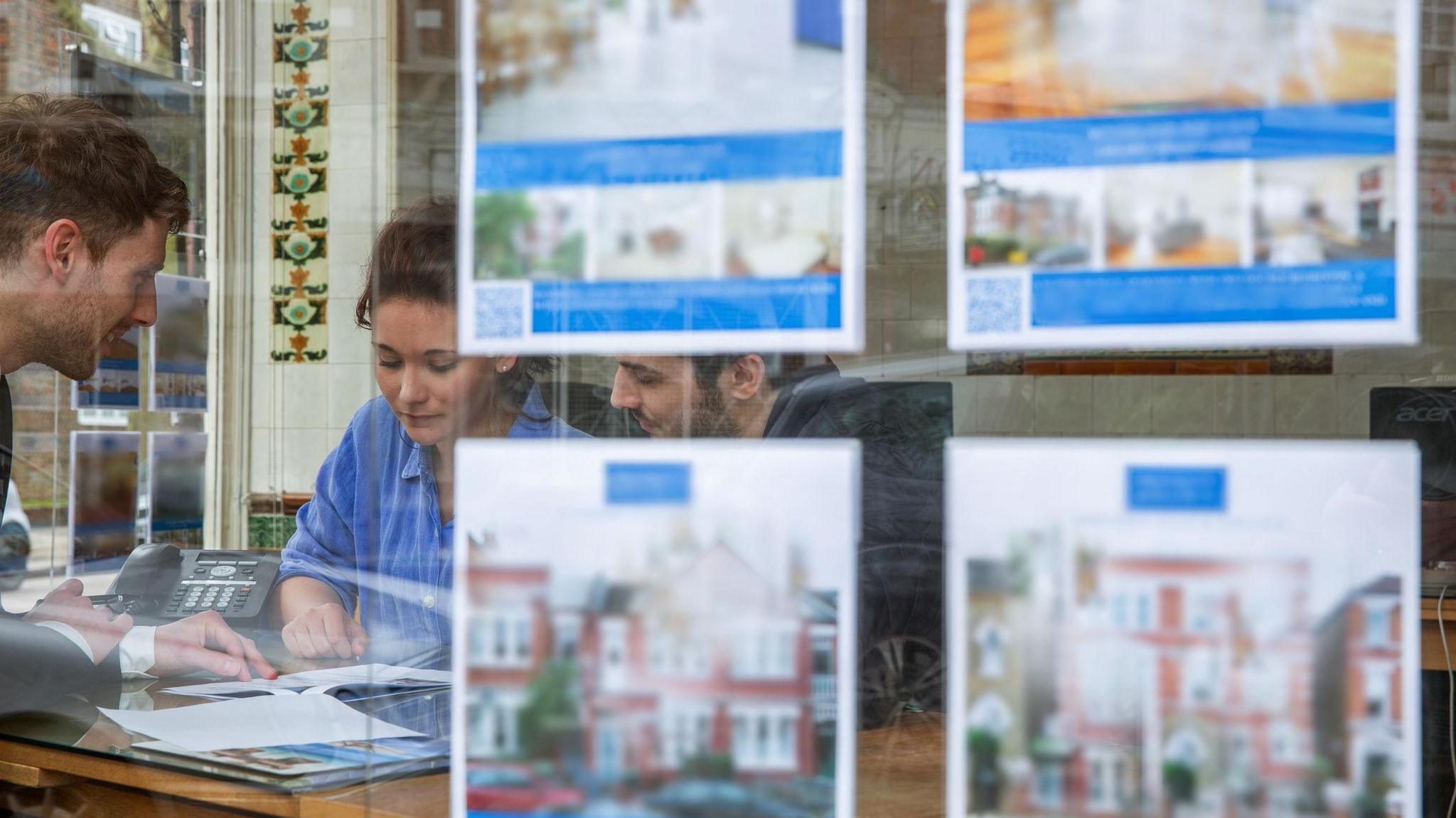Chocolate prices soar as UK inflation stays at highest in over a year

- Published
Chocolate prices in the UK rose at the fastest pace on record in May as the overall cost of food continued to climb, official figures suggest.
The main rate of inflation remained at 3.4% in the year to May, the highest for more than a year.
However, food prices grew for the third month in a row, as some economists speculated that businesses were passing on recent increases in employer National Insurance payments to customers.
The rise, along with a higher minimum wage, came into effect in April, after Chancellor Rachel Reeves announced the increases in last October's Budget aimed at raising £25bn.
Food prices have risen for three months in a row and, at 4.4% in May, are the highest since February last year.
Ruth Gregory, deputy chief economist at Capital Economics, suggested that the increase "perhaps provides a tentative sign that firms are passing on more of April's rise in National Insurance Contributions in their selling prices".
The overall pace of price rises in May was the same as in April, following a revision by the Office for National Statistics (ONS).
Inflation is above the Bank of England's target rate of 2% but it is not expected to cut interest rates from 4.25% when it meets on Thursday.
ONS data revealed that chocolate prices rose by 17.7% in the year to May - the sharpest increase since 2016 when its records began.
Bad weather in cocoa-producing regions such as Ghana and Ivory Coast have hit harvests.
"These two countries produce well over half of all the cocoa in the world," said Jonathan Parkman, head of agriculture at Marex, a commodities broker.
He added that problems in Ghana and Ivory Coast also included long-term government mismanagement of the cocoa sector and a surge in disease.
"There is little chance of a fall in chocolate prices this side of Christmas," he said.
Rising food inflation was partially offset by cheaper travel prices in May.
Air fares fell by 5% between April and May this year compared to a 14.9% rise in the period last year.
The ONS said that the cost of plane tickets fell compared with the large rise last year "as the timing of Easter and school holidays affected pricing".
Easter fell at the end of March last year but in 2025, Easter Sunday was on 20 April.
UK inflation rate: How quickly are prices rising?
- Published19 November
When will interest rates go down again?
- Published19 November
Commenting on the inflation rate, Chancellor Rachel Reeves said: "This government is investing in Britain's renewal to make working people better off."
But shadow chancellor Mel Stride called the latest inflation figures "deeply worrying for families".
"Labour's choices to tax jobs and ramp up borrowing are killing growth and stoking inflation - making everyday essentials more expensive," he said.
Kris Hamer, director of insight at the British Retail Consortium, which represents the sector, said: "Since October, retailers have warned that the costs from the chancellor's Budget could not be fully absorbed and would inevitably lead to higher prices for shoppers."
John Roberts, chief executive of AO World, the electrical goods retailer, told the BBC's Today programme on Wednesday: "If you put taxes on businesses and you put taxes on employment that isn't a growth engine, it's as simple as that for me."
'Young families now price-check'

Coffee stand owner Zayna Omer says young families are spending less on food
Zayna Omer, owner of coffee stand Harbour Grind in Whitstable told the BBC that business is "good" but she has noticed consumers' budget are squeezed.
Customers are not buying as much food from her, opting instead to bring packed lunches when they take a day trip to the Kent seaside town.
"Most people here are retirees, so they have income," Ms Omer said.
"But the young families, you do notice with them they will price check first or compare prices along the strip, and then come back."
Ms Omer said hidden costs - such as card machine fees which cost her about 10p extra per coffee sold - have led to her offering cash customers a small discount.
For now, she will keep her prices as they are. "I'd go out of business if I increase my prices," she said.
There is concern that inflation could rise if oil prices increase due to the conflict between Israel and Iran.
Disruption to the Strait of Hormuz could lead to "surging oil and shipping costs", said David Bharier, head of research at the British Chambers of Commerce.
The Strait of Hormuz in southern Iran is an important sea passage for oil shipments from the Gulf.
A fifth of the world's oil consumption passes through the area every day and any hint that Iran might block the seaway would send crude prices soaring.
"Many smaller businesses will have little capacity to absorb these pressures," Mr Bharier said.
- Published5 June

- Published27 April

- Published15 June
